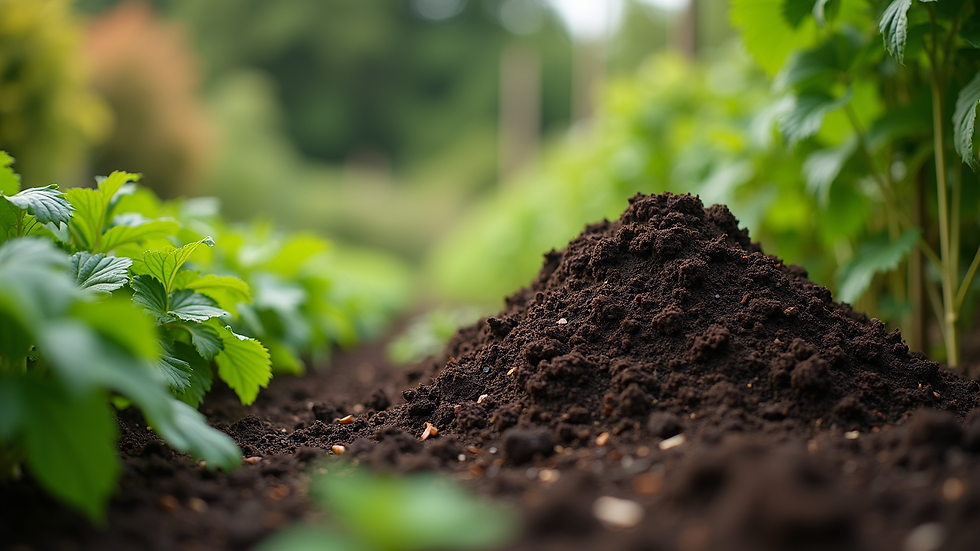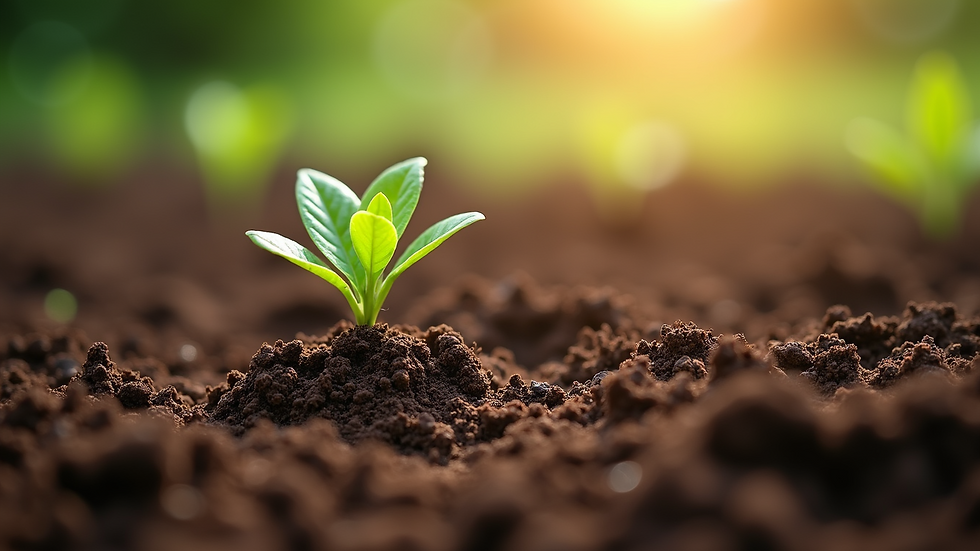Eco-Friendly Tools for a Greener Garden
- coyneremily5

- Jul 15, 2025
- 4 min read
Creating a greener garden is not just about planting flowers and vegetables. It's also about using tools and supplies that support sustainability. Eco-friendly tools can make gardening easier while minimizing environmental impact. In this post, we'll explore various eco-friendly gardening tools that can help you maintain a beautiful and sustainable garden.
Eco-Friendly Gardening: The Importance of Green Tools
Using eco-friendly gardening tools means you're opting for products made from sustainable materials or designed to conserve resources. Traditional gardening tools can often be harmful to the environment, given their plastic parts and non-biodegradable materials. Eco-friendly options, however, can be made from bamboo, recycled metals, or other renewable resources.
By switching to eco-friendly tools, you can contribute to reducing carbon footprints and promoting biodiversity. Statistics show that gardens can absorb vast amounts of CO2, making them essential for fighting climate change.

Essential Eco-Friendly Gardening Tools
When it comes to eco-friendly gardening, certain tools stand out as must-haves. Here are some examples of sustainable options that will help you get started on your eco-friendly gardening journey.
Hand Tools: Trowels and Rakes
Traditional hand tools made from plastic or low-quality metals can contribute to landfill waste. Instead, consider investing in hand tools made from sustainable materials. Look for trowels and rakes crafted from bamboo or recycled steel.
Bamboo tools are not only durable but also lightweight, making gardening tasks easier. They can last longer than their plastic counterparts, providing better value over time. Similarly, recycled metal tools reduce the need for new materials, helping to conserve resources.

Watering Systems: Drip Irrigation
Watering your garden can be one of the most resource-intensive activities when gardening. A standard hose can waste significant amounts of water through evaporation and runoff. That's where drip irrigation systems come into play.
Drip irrigation allows you to deliver water directly to the roots of your plants, reducing water wastage by up to 70 percent. These systems can be made from recycled materials, helping you further reduce waste. Setting up a drip irrigation system might require a little initial investment, but the long-term water savings are eco-friendly and economical.
Organic Fertilizers and Soil Amendments
To grow healthy plants, good soil is essential. Traditional fertilizers often contain harmful chemicals that can leach into waterways and affect local ecosystems. Instead, opt for organic fertilizers made from natural ingredients.
Compost is one of the best options for improving soil quality while promoting sustainability. You can create your own compost from kitchen scraps and yard waste, which also diverts organic material from landfills. Additionally, organic fertilizers like bone meal or fish emulsion provide necessary nutrients without chemical pollutants.

Eco-Friendly Planting Practices
Beyond tools, certain practices can bolster your eco-friendly gardening efforts. Here are some actionable recommendations to help you implement sustainable practices in your gardening routine.
Native Plants and Pollinator Gardens
Choosing native plants for your garden is an effective way to support local ecosystems. Native plants are adapted to the local climate and soil conditions, requiring less water and maintenance than exotic species. They also provide habitats for local pollinators like bees and butterflies.
Establishing a pollinator garden is another great step towards promoting biodiversity. Include a variety of flowering plants to attract pollinators throughout the growing season. This not only enhances your garden's beauty but contributes to supporting local wildlife.
Companion Planting
Companion planting involves growing different plants together to enhance growth and reduce pests. Some combinations can naturally repel harmful insects. For instance, planting marigolds alongside vegetables can deter pests like aphids and nematodes.
By practicing companion planting, you can reduce the need for chemical pesticides, leading to a healthier garden ecosystem. This practice is not only sustainable but can also enhance the yield of your crops.
Resources for Eco-Friendly Gardening Supplies
Finding eco-friendly gardening tools and supplies is easier than ever. Numerous retailers specialize in sustainable gardening products. One excellent source for a variety of sustainable gardening supplies is Blooms N Thyme. They offer a broad range of tools, fertilizers, and organic seeds to help you create an environmentally friendly garden.
In addition, local garden centers often carry eco-friendly options. Don't hesitate to ask staff about their sustainable offerings when shopping for new tools and supplies.
The Joy of Eco-Friendly Gardening
Adopting eco-friendly practices in your gardening not only benefits the environment but also enhances your gardening experience. The sense of fulfillment gained from nurturing plants while knowing your actions impact the planet positively can be incredibly rewarding.
By choosing eco-friendly tools and implementing sustainable practices, you can create a beautiful and vibrant garden. It's about making small changes that collectively lead to a significant impact on our planet's health.

Gardening is a journey of learning and growth. By embracing eco-friendly tools and practices, you'll be on your way to cultivating a greener garden that’s not just good for you, but good for the planet. So grab those eco-friendly tools and start digging into a more sustainable way of gardening today!





Comments